Andrew Grant

Trustworthy journalism comes at a price.
Scientists and journalists share a core belief in questioning, observing and verifying to reach the truth. Science News reports on crucial research and discovery across science disciplines. We need your financial support to make it happen – every contribution makes a difference.
All Stories by Andrew Grant
-
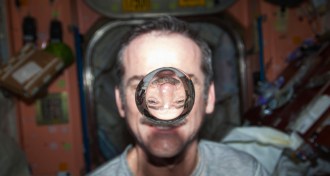 Space
SpaceMaking the most of zero gravity
Astronaut and author Chris Hadfield discusses life in, and after, space.
-
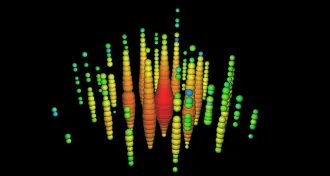 Astronomy
AstronomyHigh-energy neutrinos ensnared from beyond the solar system
Speedy particles detected in Antarctica may point to gargantuan black holes or cataclysmic explosions.
-
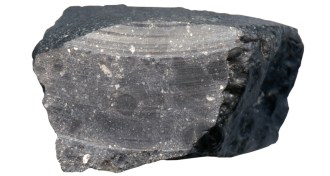 Planetary Science
Planetary ScienceAncient Martian meteorite preserves chunks of planet’s early crust
Rock could reveal what Mars was like 4.4 billion years ago.
-
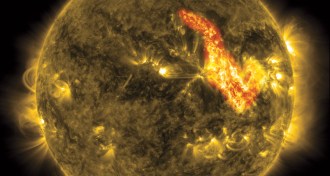 Astronomy
AstronomySolar explosion forms ‘Canyon of Fire’
Just when the sun was looking especially lethargic, a violent eruption left behind a vast chasm of superheated gas on the solar surface.
-
 Physics
PhysicsSingle photon detected but not destroyed
Researchers build first instrument that can witness the passage of a light particle without absorbing it.
-
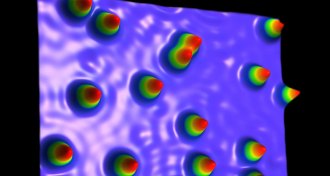 Physics
PhysicsSingle atoms hold on to information
Minutes-long data storage by individual atoms beats previous record of tiny fraction of a second.
-
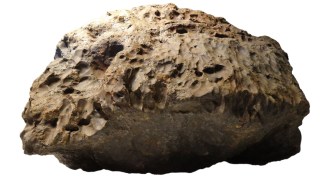 Planetary Science
Planetary ScienceMeteor explosions like this year’s Russian fireball more common than thought
Chelyabinsk-sized rocks may come to Earth every 30 years, on average.
-
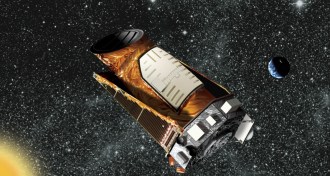 Astronomy
AstronomyBillions and billions of Earth-sized planets call Milky Way home
Using Kepler data, astronomers estimate that a sizeable fraction of the galaxy’s sunlike stars have Earth-sized planets that could support liquid water.
-
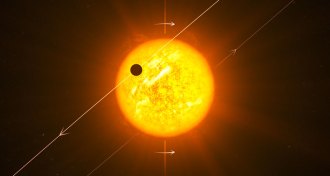 Astronomy
AstronomyAstronomers explain planets’ backward motion
Giant planets in distant orbits may be reversing the direction of their closer-in neighbors.
-
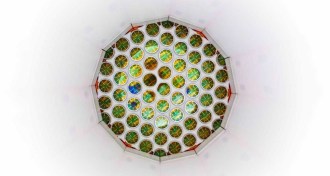 Cosmology
CosmologyCandidates for dark matter particles bite the dust
Most sensitive experiment yet determines that earlier findings were just artifacts.
-

-
 Quantum Physics
Quantum PhysicsSingle electron caught in action
Researchers have found a way to isolate the behavior of one particle.